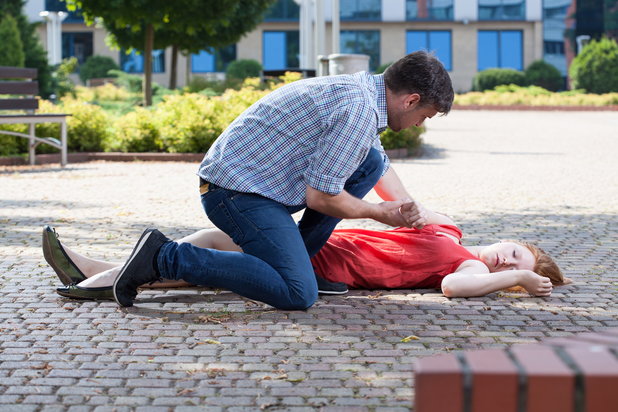Too much alcohol consumed in a short period of time can kill you. Although alcohol is a legal drug, it has profound effects on the body and can easily cause a person to overdose. If you're not aware of the signs, symptoms and what to do when someone has consumed too much too quickly, the person could be in grave danger.
Aside from too much alcohol in the system, consuming large amounts of alcohol in a short period of time can also depress a person’s breathing, gag reflex, body temperature, and heart rate. This can lead to someone asphyxiating on their own vomit or the poisoning of the respiratory center of the brain, both of which can cause coma and death.
Who is Affected?
Alcohol poisoning is common among binge drinkers, as they consume high amounts of alcohol in a short period of time compared to social drinkers. It is estimated that 2.6 million binge drinkers in America are between the 12 and 17 years of age, therefore your teenage child or friend or college roommate could be the life you save.
Alcoholics are the most likely to succumb to alcohol abuse, and there are an estimated 50,000 cases of alcohol overdose each year. However, there are an estimated 900 new cases of alcohol poisoning in the U.S. each week and most of those are accounted for by college students.
What to Look Out For
If severe enough, alcohol poisoning that doesn't lead to death or is left untreated can leave the victim irreversibly impaired with lifelong brain damage. It's not worth ignoring or worrying if your friend might be mad when it may be a matter of life or death. Understand that alcohol is in fact a drug and a powerful one that can kill you or a friend, so never hesitate to take action.
Here are some of the signs and symptoms of alcohol poisoning:
- Unconsciousness and cannot be awakened
- Looking pale or blue
- Low body temperature
- Slowed or irregular breathing
- Irregular pulse
- Choking
- Excessive vomiting leading to asphyxiation
- Seizures
- Confusion
- Loss of bowel or bladder control
- Inability to walk
How to Help
If you see at least one of these signs, be aware that the situation can be lethal. Don't wait for all signs to be present or something a little more detrimental (in your opinion) like a seizure. Get them help. Call 911 or take them to the nearest emergency room.
As you wait for medical help, do not leave the person alone nor let them consume anything else other than water. Get them a warm blanket, keep them awake or make sure they are laying on their side so they do not choke on their own vomit.
Remember, it's better to end up at the hospital and realize it was a false alarm than to never make it to the E.R. when it was the one thing that could have saved the person's life.
|
If you or someone you know is seeking help from alcohol addiction, please visit our directory of treatment centers or call 800-772-8219 to speak to a treatment specialist. |








